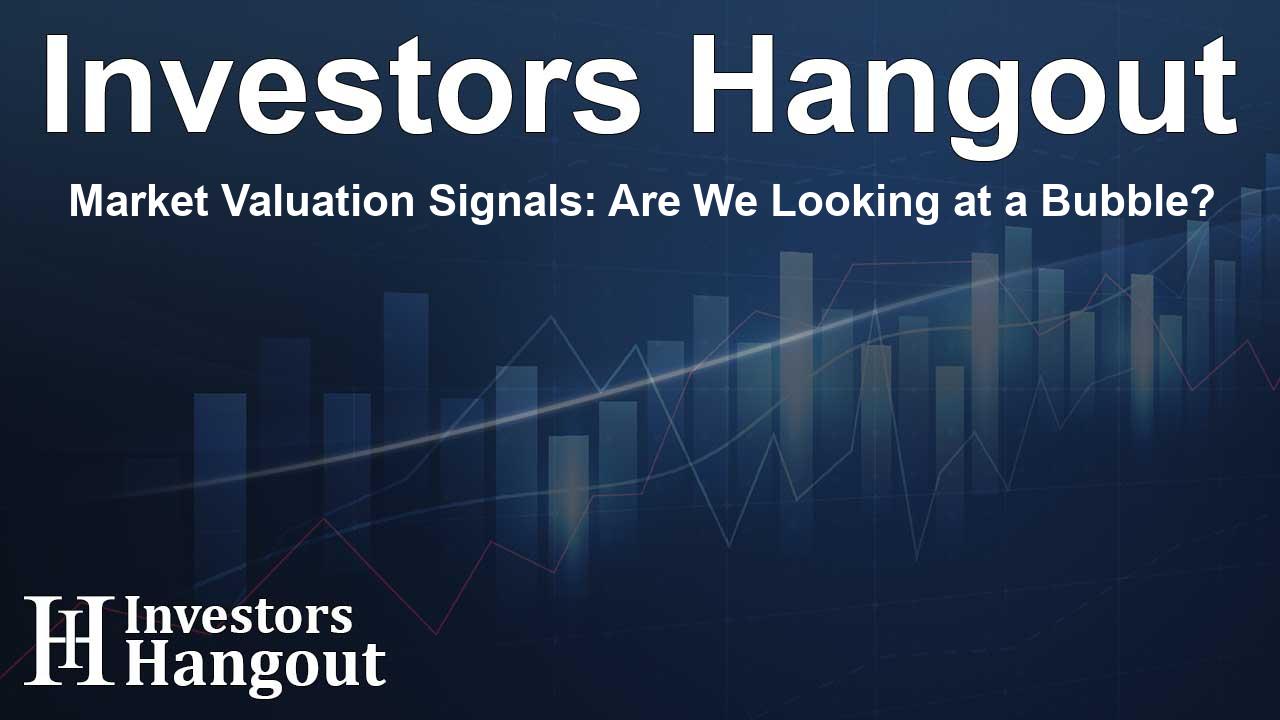Market Valuation Signals: Are We Looking at a Bubble?

Market Speculation and High Valuations
In recent discussions about the financial market, Federal Reserve Chair Jerome Powell has made remarks highlighting concerns about current market valuations. He noted that equity prices are seen as fairly high by several measures. This perspective has arisen amid increasing speculations regarding an imminent market bubble.
Buffett Indicator and Valuation Metrics
One of the focal points in evaluating market health is the Total Market Cap to GDP ratio, commonly referred to as the "Buffett Indicator." This metric has escalated to a staggering 216.6%, significantly exceeding its historical norms. Such levels have not been observed since the peak of the dot-com era, intensifying worries among investors and analysts alike.
Another serious indicator—the Shiller Cyclically-Adjusted Price-to-Earnings (CAPE) ratio—has surged past 40, drawing parallels to its peak approaching 44.19 in late 1999. The current environment reflects an AI-driven market enthusiasm that is largely concentrated among a few mega-cap stocks, casting shadows on the sustainability of these valuations.
Impact of Market Valuations
According to trends, the forward Price-to-Earnings (P/E) ratio for the S&P 500 now stands at 22.8, impressively around 40% higher than its long-term average. This divergence raises questions regarding the potential consequences if the market continues to trend higher.
Analysts Reflect on Past Crashes
Many market analysts have drawn historical comparisons between today's soaring valuations and the dot-com bubble. The consensus is mixed; some analysts express caution, believing current tech giants maintain stronger balance sheets than many firms during the previous boom. Nonetheless, the size and rapid growth of the current AI boom pose unique risks, potentially resulting in more profound ramifications than anticipated.
Wells Fargo Advisors have highlighted that, similar to 2000, a limited number of stocks are pushing the S&P 500 to new heights. Currently, over 55% of the index is comprised of tech, communications, and consumer discretionary sectors driven by a handful of significant players, drawing further scrutiny on market dynamics.
Warnings About Systemic Risk
There have also been stark warnings from financial experts like Mark Spitznagel, founder of Universa Investments. He posits that persistent Federal Reserve interventions risk creating an unstable financial landscape, akin to pressing a powder keg. The failure to allow minor market corrections may have caused potential dangers to accumulate, possibly culminating in major market disruptions.
Market Reactions and Future Outlook
The recent price action reflects these brewing tensions; the SPDR S&P 500 ETF Trust (SPY) and Invesco QQQ Trust ETF (QQQ) both experienced declines, with SPY decreasing by 0.54%. Conversely, in futures trading, indices such as the Dow Jones, S&P 500, and Nasdaq 100 have shown signs of recovery, suggesting a complex and fluctuating market sentiment.
Frequently Asked Questions
What is the Buffett Indicator?
The Buffett Indicator compares the total value of the stock market to the country's GDP, serving as a gauge of market valuation and potential overvaluation.
What is the CAPE ratio?
The Shiller CAPE ratio measures stock market valuation by averaging earnings over the past ten years and adjusting for inflation, providing a long-term perspective on market pricing.
Why are current valuations considered high?
Current valuations are seen as high due to metrics like the Buffett Indicator and the CAPE ratio surpassing historical averages, indicating potential overvaluation in the stock market.
What are the potential risks of high valuations?
High valuations could signify a bubble that, if burst, may lead to significant market corrections and economic ramifications, potentially reflecting historical crashes.
How are investors reacting to market signals?
Investors seem cautious but divided, as some are wary of the potential for a market bubble, while others are hopeful about continued growth, particularly in tech and AI-driven sectors.
About The Author
Contact Owen Jenkins privately here. Or send an email with ATTN: Owen Jenkins as the subject to contact@investorshangout.com.
About Investors Hangout
Investors Hangout is a leading online stock forum for financial discussion and learning, offering a wide range of free tools and resources. It draws in traders of all levels, who exchange market knowledge, investigate trading tactics, and keep an eye on industry developments in real time. Featuring financial articles, stock message boards, quotes, charts, company profiles, and live news updates. Through cooperative learning and a wealth of informational resources, it helps users from novices creating their first portfolios to experts honing their techniques. Join Investors Hangout today: https://investorshangout.com/
The content of this article is based on factual, publicly available information and does not represent legal, financial, or investment advice. Investors Hangout does not offer financial advice, and the author is not a licensed financial advisor. Consult a qualified advisor before making any financial or investment decisions based on this article. This article should not be considered advice to purchase, sell, or hold any securities or other investments. If any of the material provided here is inaccurate, please contact us for corrections.
